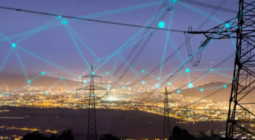Michigan Poised to Join States Requiring 100 Percent Clean Electricity

A suite of bills headed to the governor’s desk will also give the state, instead of local governments, the authority to approve industrial-scale renewable energy projects.
Michigan is likely about to take its place among states with aggressive plans to cut emissions from the electricity sector.
The legislation, which is on track to arrive at Gov. Gretchen Whitmer’s desk within days, follows the Democratic Party’s rise to control state government in January with new majorities in the legislature.
But some advocates for environmental justice communities say the final package represents a compromise in which powerful players—like utility companies, labor unions and heavy industry—got concessions they wanted at the expense of people who live in neighborhoods with the most pollution.
The Michigan House of Representatives passed bills in the package on Thursday and early on Friday.
“Climate change is real, and it is an immediate threat to the well-being and economic prosperity of our state,” said Rep. Jenn Hill, a Democrat whose district is in the Upper Peninsula, speaking on the House floor at 12:20 a.m. on Friday. “It’s time that Michigan does its part to address climate change.”
She described how severe weather tied to climate change is harming her community, including how a May snowstorm led to a roof collapse at a women’s center, and a sled dog race had to be canceled because of severe rain.
Here are the main bills and what they do:
- Senate Bill 271 requires that Michigan get 100 percent of its electricity from clean sources by 2040, along with requirements for increases in energy storage and improved access to rooftop solar. The definition of “clean” includes renewables and nuclear and also includes natural gas power plants that use carbon capture.
- Senate Bill 273 requires electricity and natural gas utilities to take actions to reduce energy waste, and it has provisions to encourage consumers to switch from gas to electric power, with a priority on low-income households.
- Senate Bill 502 says the Michigan Public Service Commission is required to consider reliability, service quality, affordability and the effects on environmental justice communities when approving long-term plans by utilities. The bill also increases funding for the state’s utility consumer advocate.
- Senate Bill 519 creates an office within the state Department of Labor and Economic Opportunity to help workers and communities affected by the shift away from fossil fuels.
- House Bill 5120 says the Michigan Public Service Commission has the authority to approve large solar, wind and battery storage projects, which takes this authority away from local governments.
The bills passed despite opposition from Republicans.
“This radical plan will ban natural gas, close power plants, and depend too much on fluctuating, unreliable wind and solar energy—and let Gov. Whitmer’s administration ignore local decisions and force wind and solar farms in rural Michigan communities to make their blackout nightmare a reality,” said a statement from Matt Hall, the House Republican leader.
Whitmer, a Democrat, praised the legislation two weeks ago, and people close to the process expect her to sign the bills.
The state’s major electricity utilities, DTE and Consumers Energy, had raised concerns about the workability of parts of the package, but their official stance was neutrality after lawmakers made concessions to address the concerns. The big one, which has upset many environmental advocates, is that the companies would be allowed to continue to operate power plants that run on natural gas past 2040 if the plants have carbon capture systems installed.
“Including natural gas as clean energy is a carve out for utilities like DTE and Consumers Energy who profit from dirty energy,” said Rep. Dylan Wegela, a Democrat whose district is in the Detroit suburbs. “Natural gas plants release toxic emissions. These plants are overwhelmingly located in low-income and minority-majority communities, communities that have been historically excluded and marginalized.”
Energy and Policy Institute, a utility watchdog group, has called attention to campaign donations by DTE and Consumers Energy as a main reason that the companies got what they wanted.
Labor unions were successful in getting the legislation to require that large renewable energy projects seeking state approval must meet standards for wages and benefits.
Large industrial companies got concessions that make sure consumer protections for households do not lead to a shift in costs to large factories for things like paying to maintain the grid.

The 2040 target would make Michigan a member of the club of states with laws that require a shift to 100 percent renewable, clean or carbon-free electricity, although the definitions of those terms vary from state to state. The others include California, Hawaii, Illinois, Massachusetts, Minnesota, New Mexico, New York, Oregon, Rhode Island, Virginia and Washington, plus Washington, D.C. and Puerto Rico. (Nuclear power is the main example of a source that is carbon-free but not renewable.)
The new legislation would be an increase from Michigan’s current law requiring utilities to get 15 percent of their electricity from renewable sources.
As of last year, the state’s leading source of electricity was natural gas, with 35 percent; next was coal, 29 percent; nuclear, 22 percent; and 12 percent renewables, according to the Energy Information Administration. Wind farms are the leading source of renewable power, comprising about two-thirds the state’s total.
Douglas Jester, owner of a clean energy policy consulting firm in Michigan, said the significance of the bills and the efforts needed to pass them cannot be overstated considering the state’s history of moderate-to-conservative leadership and a tendency to move slowly on addressing climate change.
His firm, 5 Lakes Energy, issued a report in August calling for policies much like what was just passed. The report, sponsored by clean energy business groups, said that state actions, along with the federal Inflation Reduction Act, could have a compounding effect that would improve public health, reduce emissions and be a net benefit for the economy.
RMI, the clean energy research and advocacy group, has projected that the legislation would create by 2035 1,500 utility jobs, 8,800 manufacturing or construction jobs and more than 15,000 other jobs. The figures are based on the nonprofit’s Energy Policy Simulator.
Jester watched the livestream of the debate early Friday morning with an awareness that he was seeing history being made, a history that he has been part of, having worked on environmental and energy policy since the 1970s.
He sympathizes with critics of the bills, especially those from environmental justice communities, but thinks the good far outweighs the bad.
This is “a really good set of bills that we should quickly support and adopt,” he said.
Environmental Justice Concerns Remain
The climate director of Michigan Environmental Justice Coalition, Juan Jhong-Chung, said some of the bills are mindful of concerns of communities of color, but the main bill in the package, which sets the 2040 target, is not.
He said environmental justice groups did not have a seat at the table in the drafting of the main bill and that community input was not part of the process, while utilities and “mainstream” environmental organizations were invited to help shape the legislation.
“We don’t believe that there are climate wins that don’t include environmental justice, and our communities should not be sold out to get a really weak climate win,” Jhong-Chung said. “We don’t think this is climate leadership at all.”
A coalition of environmental justice groups called on Whitmer to reject the main bill, saying the clean energy standard is weak and supports carbon capture technology that can be ineffective or even dangerous. It also allows “dirty” energy sources to count as renewable, including landfill gas, natural gas and animal manure, he said.
The bill states that trash incineration wouldn’t count as renewable energy except for the state’s only existing commercial trash incinerator in Grand Rapids. The neighborhoods surrounding the incinerator experience disproportionately high environmental burdens, according to a 2019 University of Michigan study.
Finding solutions in incineration facilities and carbon capture technologies distracts from the need to focus on the root of the problem, said Sergio Cira-Reyes of the Urban Core Collective of Grand Rapids. “I don’t feel like they’re listening to us at the state level.”
The Urban-Rural Divide
Until now, Michigan’s local governments have had control over whether large renewable energy projects can be built. Some local governments and voters have approved measures that severely limit or ban projects, often in response to residents who have concerns about changes to the visual landscape and who repeat dubious claims that wind and solar projects are a danger to human and animal health.
House Bill 5121 would take this power away from local officials and give it to the Michigan Public Service Commission, whose members are appointed by the governor. The commission would have the authority to approve solar projects of 50 or more megawatts and wind and battery storage projects of 100 or more megawatts.
Republicans and local government officials say this is an unfair restriction on local control that amounts to elected officials from large cities and suburbs imposing their will on people in rural areas.
“This plan would give an unelected board in Lansing the power to dictate decisions regarding our local communities and burden our rural areas with massive wind and solar farms, even despite legitimate pushback,” said Rep. Matthew Bierlein, a Republican from Vassar, a small city near Saginaw Bay.
Doug Bessette, a Michigan State University professor of community sustainability, said changes to the approval process will likely lead to more wind, solar and storage projects getting built, but also will inflame tensions with rural voters.
“The rural-urban divide is pretty serious in the state,” he said. “You have these blue cities, and then the rest of the state is pretty red.”
He thinks that taking away local authority will contribute to a sense in rural areas that wind and solar projects are being imposed on them, and hurt the ability of clean energy advocates to persuade rural residents of the environmental and economic benefits of hosting the projects.
Michigan would join Illinois, which passed a law this year restricting local control over clean energy projects.
Before last year’s general election, Michigan lawmakers would not have had the votes to pass this package. But thanks to a strong re-election campaign by Whitmer and turnout related to a referendum on abortion rights, Democrats did well enough in legislative races to gain control of both chambers of the legislature.
Jester, the energy policy consultant, said Whitmer could have made the excuse that climate policy is too complicated or controversial to deal with in the first year of this majority, but she didn’t.
“Her leadership is the reason that this stayed on the agenda, and we ultimately got it done,” he said.
Correction: Senate Bill 271 creates a “clean” electricity standard. A previous version of this story referred to a “carbon-free” standard, which is not the wording used in the bill.





